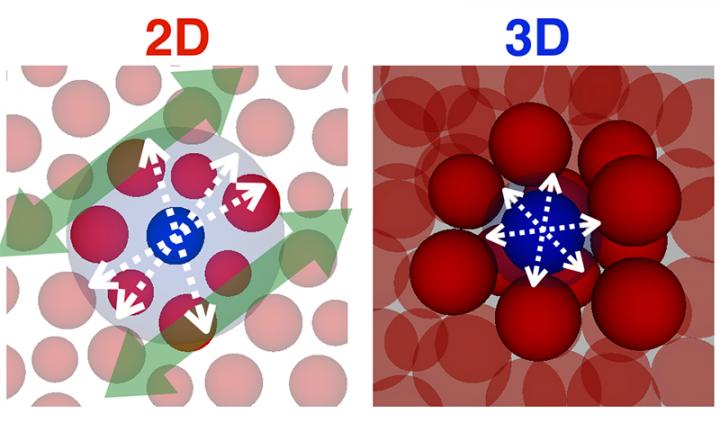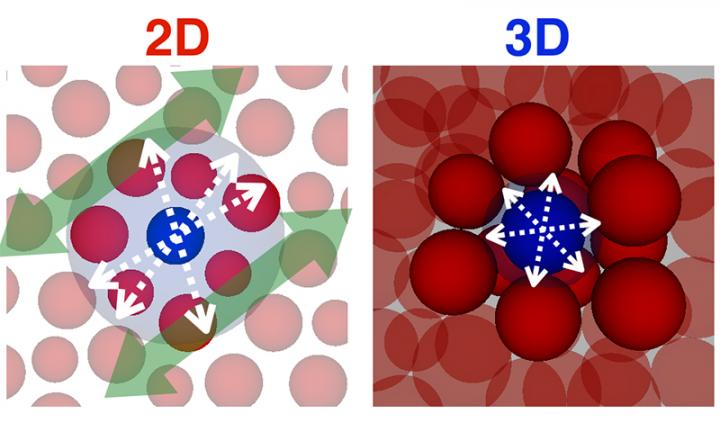
Credit: Hayato Shiba
Scientists in Japan have revealed that if a glassy solid possesses a planar (sheet-like) structure, it can exhibit enhanced thermal vibration motion due to the same mechanism known for the planar crystals (two-dimensional crystals), by using large-scale simulations on supercomputers.
"Imagine if we could make a sheet of glass, which has a two-dimensional (2D) planate shape," says Dr. Hayato Shiba, of Tohoku University's Institute for Materials Research (IMR). "In such a confined spatial dimension, a variety of novel phenomena takes place in usual "periodic" systems (crystals, spin systems etc.). This is due to the thermal motion of the constituents taking place on a larger scale because of the limited spatial dimensions."
Such enhanced thermal motion is known to induce new physical phenomena which Shiba, and his research team of Yasunori Yamada (IMR), Takeshi Kawasaki (Nagoya University) and Kang Kim (Osaka University), hope will lead the development of new functional materials and devices necessary for the realization of energy-saving societies.
However, it is still uncertain whether 2D glass, as an "non-periodic" system, exhibits such enhanced thermal motions.
"Our result indicates that 2D glass can become soft, gradually and forever, as we go to the macroscopic scales. Consequently, the vibration amplitude becomes infinite because of the large-scale motions," says Shiba.
"In other words, such materials might exhibit strong responses to external fields or deformation. The thermal vibration is perfectly different from that in a 3D glass, and it can even alter the fundamental nature of vitrification and glassy phase transition."
In the experiments, 2D glass was experimentally realized using colloidal systems, and can also be realized using other soft and hard materials.
###
Media Contact
Hayato Shiba
[email protected]
@TohokuUniPR
http://www.tohoku.ac.jp/en/
############
Story Source: Materials provided by Scienmag





